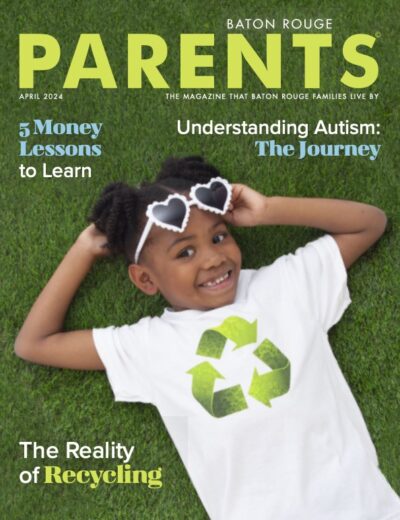
The Santa Club
The Santa Club
By Kimberly Fortner

You may wonder when the Santa conversation should occur, but—like many other situations—it depends on each individual child and his maturity level. Most six- and seven-year-olds believe in Santa and look forward to the goodies he leaves for them under the tree. However, nine- and ten-year-olds are a different story. It’s likely that they aren’t going to believe in fairytales and they have surely caught on that it’s actually you who stuffs their stockings. If they haven’t, it’s just a matter of time. Before you confirm your child’s suspicions, consider the following tips.
Fact check. Older kids at school may tease younger kids about their belief in Santa and possibly have told your child some things he’s questioning or wasn’t ready to hear. Find out just how much your child already knows. If he demands the truth, first respond with questions such as “Who do you think leaves presents for you?” or “Do you believe Santa is real?” If your child still believes that Santa is watching with his master list, maybe the influence of the older kids in this situation won’t matter too much and the emotional upset can easily be patched with a creative explanation from you. Simply find out what your child is thinking before you go any further as uncovering the truth could wait until next year.
Is it really time? Kids are only kids for so long so what’s the rush on letting this holiday cat out of the bag? Consider your child’s age, first. If your child is seven or younger, the broken heart is probably not worth revealing the secret at this time. Postpone it as long as you can. Also, talk to parents of your child’s friends. Find out how they are handling their child’s growing curiosity. If they are not even close to discussing this topic with their child, maybe you can hold off a bit longer as well.
In addition to the age of your little one, think about her maturity level. Even if your child is eight years old and his friends know the truth, your child may not be ready. If you are going for full disclosure, your kid needs to be able to comprehend it before he can deal with the truth of the matter.
Breaking the news. Sneaking around on Christmas Eve, although fun, will be eventually replaced with new traditions. Let’s face it—there’s just no easy way to say it. It’s the end of an era and you don’t want to see your kid sad, so try to focus on the positive. No need to come out and say, “Santa is make-believe.” You can let your child down easy and say, for instance, that spreading Christmas cheer is a huge job and that even though you are the one who wraps the presents, there is a little Santa in all of us. Incorporate some history and mention that Santa was an actual person centuries ago and an important historical figure for kids today and yesterday. He was so influential and had such a positive impact that many parents, including you, choose to carry on the tradition. Christmas is all about making the children happy and that’s exactly what Santa did.
Prepare to comfort. Yes, there will certainly be tears and your child will probably be disappointed. Santa is someone he’s believed in for so many years. A letdown is inevitable so be kind and patient while he adjusts to the facts. You may feel a little guilt if and when your child accuses you of lying to him. Apologize and give reasons why you decided to participate in the
Santa secret. If there is resistance on your child’s part, remind him how magical the holidays have been and that you just wanted him to experience this type of happiness just like you did when you were a child. Additionally, point out the lessons that he has learned from his Christmas childhood experience. Realizing it’s better to give than to receive is an important life lesson. And it’s also good to have grasped just how good it feels when someone gives you special gifts.
Welcome to the club. Now that your child knows the facts, make it fun for her. She’s in the big girl club now and with that comes responsibility. She is entrusted with a very important secret that she must keep to herself. You can recruit her to be like a Santa herself and carry on this tradition for all the younger kids she knows. Local parent Anne Thompson said that when her child found out she did a silly initiation into the Santa Club, as she called it. She ended the ceremony with a kiss under the mistletoe and a pinky swear to seal the deal.
You can even enlighten your kid, when she’s ready, on how the plan was carried out and maybe some funny mishaps that you’ve had along the way. This could turn out to be a great bonding experience. Now that your child has matured, have her think of some ideas to keep the magic alive for siblings and friends. It’s significant that even after you’ve been through the hard explanations to emphasize the joy that Santa’s spirit has brought to your child and countless others.
Many parents—when asked if Santa is real—will tell their kids the truth, even when the secret is out. And the truth for them is that Santa is real. Santa does, after all, symbolize the magic of the season and the childlike faith in all of us. He helps us to truly relish the joy of giving—of being compassionate and selfless. So, when they’re asked about Jolly Old St. Nick, they’ll say, “Yes, he is real.” Hopefully, you’ll be one of those parents and confirm his existence because in your heart, you believe in him too.





